Cape Maclear (called Chembe in the local tongue) is probably Malawi’s most renowned tourist destination. Here lodges and campsites line the shore of Lake Malawi, interspersed with local dwellings and fishing enclaves. By Karin Theron
Cape Maclear is blessed with breathtaking sunsets over Lake Malawi, clear water with brightly coloured tropical fish and a rich village life. As it is facing northwest it is protected against the fierce winds that sometimes rise on the lake and carry dreadful swarms of lake flies.
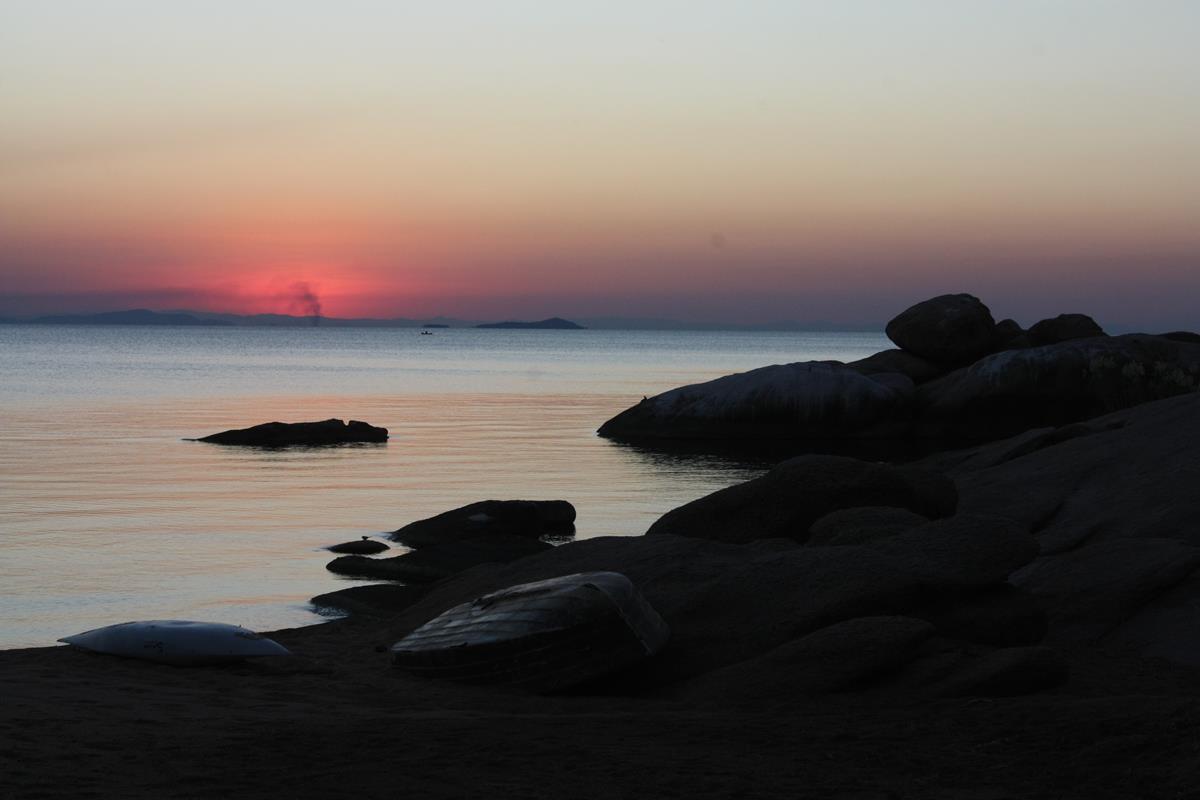
You will often see big clouds of smoke hanging over Lake Malawi. These are in actual fact millions of little flies. When these swarms of flies (they are slightly bigger than mosquitoes) are carried to land by the wind, the people catch them in nets and make cakes which they dry to eat.
The locals live from the lake
The lakeshore is certainly not only reserved for upmarket lodges. It is alive with the laughter of playful children and the rhythm of African music that beats until the early morning hours. This is one of the few places in southern Africa, if not the only one, where one can enjoy the style of an upmarket lodge and the warmth of the local African culture simultaneously. One has to drive through Chembe, which is quite big, to get to any of the lodges or campsites on the lake shore. Because the people of Malawi are welcoming, warm and honest one never feels threatened or uneasy being in the midst of a local village.
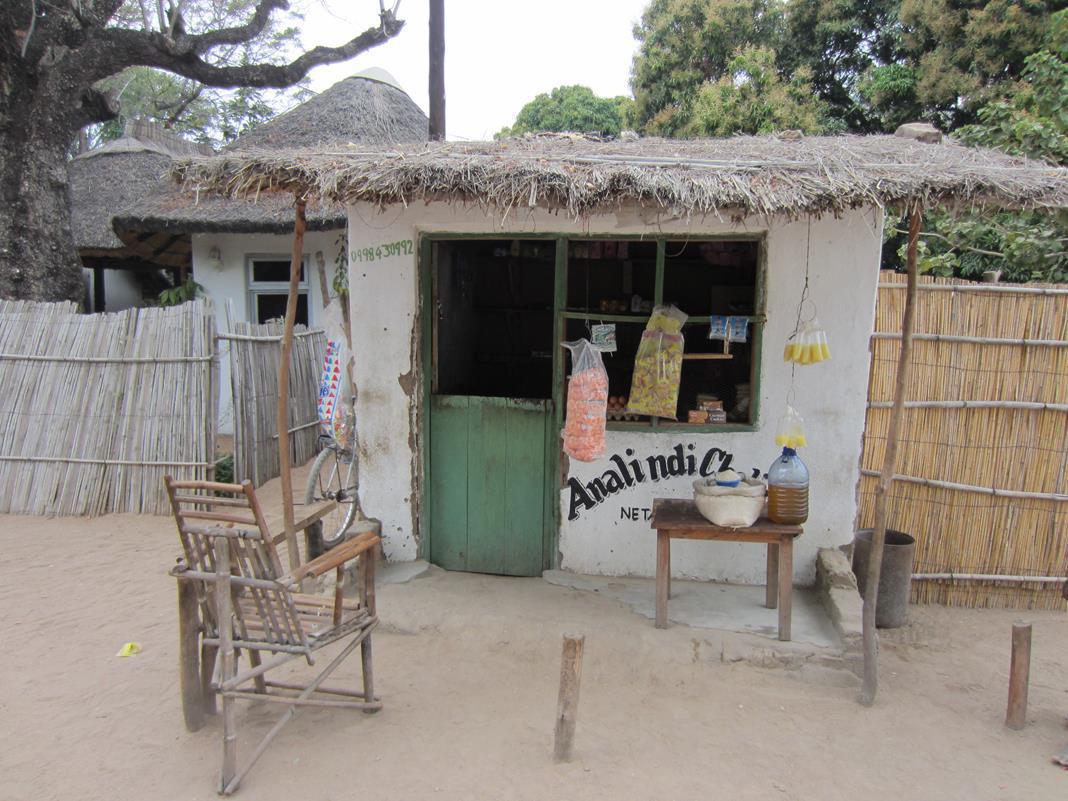
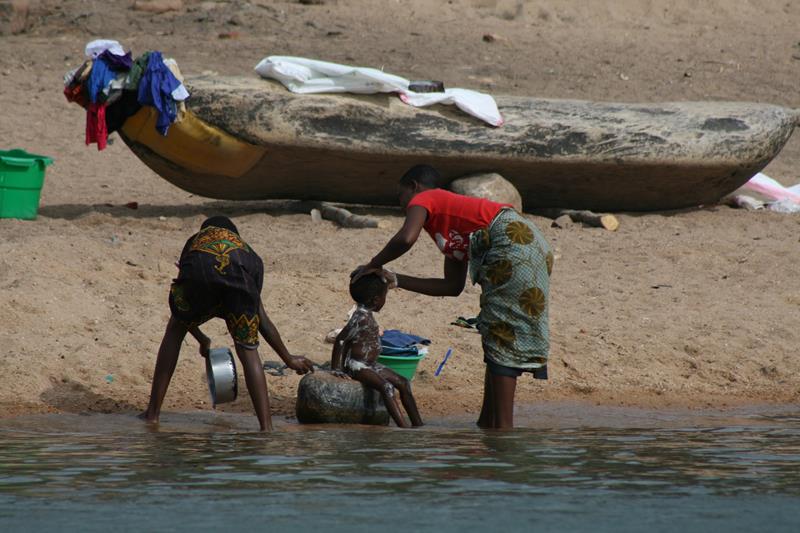
As the fishing enclaves are intermingled with the lodges the locals assert full ownership of their lake. They are dependent on it for their livelihood. It is their source of drinking water and food, they swim in it to cool off on hot days and they do their washing in its waters. In spite of these activities the waters around Cape Maclear are still clear and if you go diving on a boat trip with one of the local guides you will get lost in an astonishing under water wonder world.
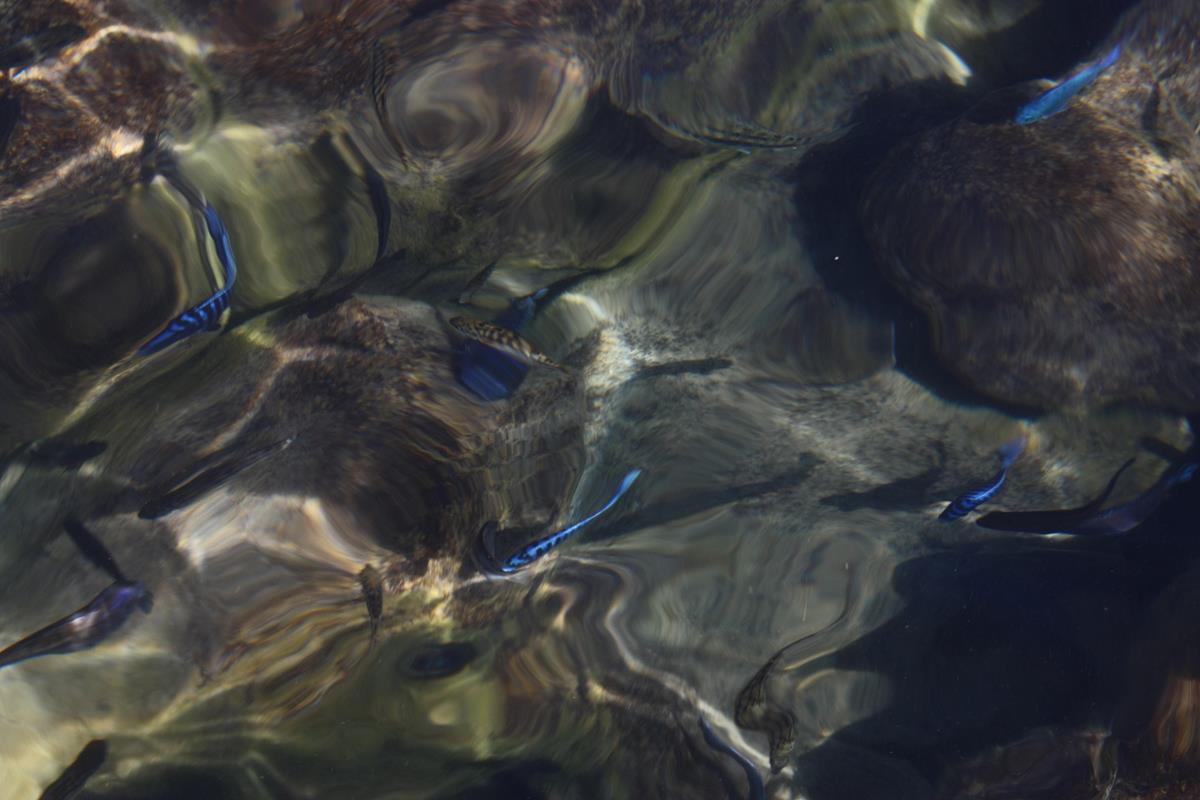
What to do in Cape Maclear
July is most probably the best time to go because it is cooler. Apart from swimming, lazing around on the beach and exploring the local village, it is most definitely worth going on a day boat trip with one of the local guides. The warm water and the excellent clarity make this the ideal snorkel destination to dive amongst the many colourful tropical fish.
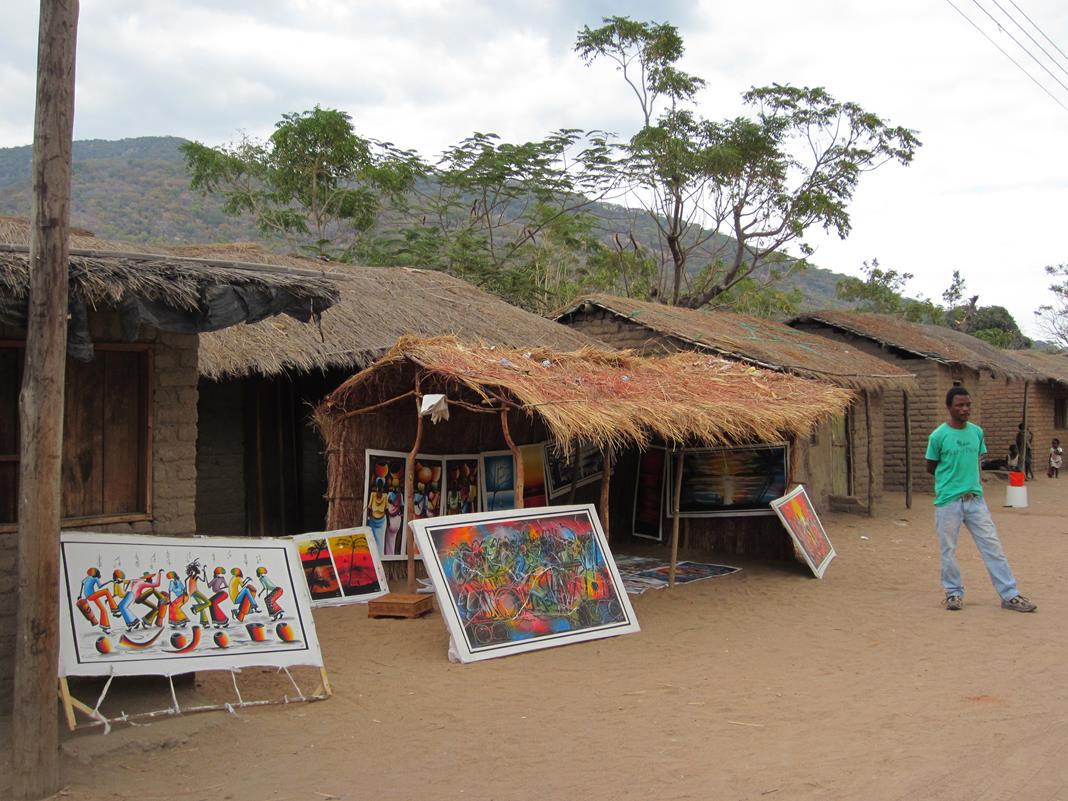
While you snorkel around Thumbi, Domwe and Mumbo islands your guide will cook you a typical local meal of fresh fish, rice and vegetables. After a relaxing day on and around the islands you will be treated to a close-up sight of fish eagles. After years of co-existence the local guides and the fish eagles understand each other. As we left Thumbi Island our guide whistled to call the fish eagles that nest on the islands. Even though they cheat a bit by luring the eagles with fish, it is still astounding to see them swooping down to snatch their take-away meal from the water.
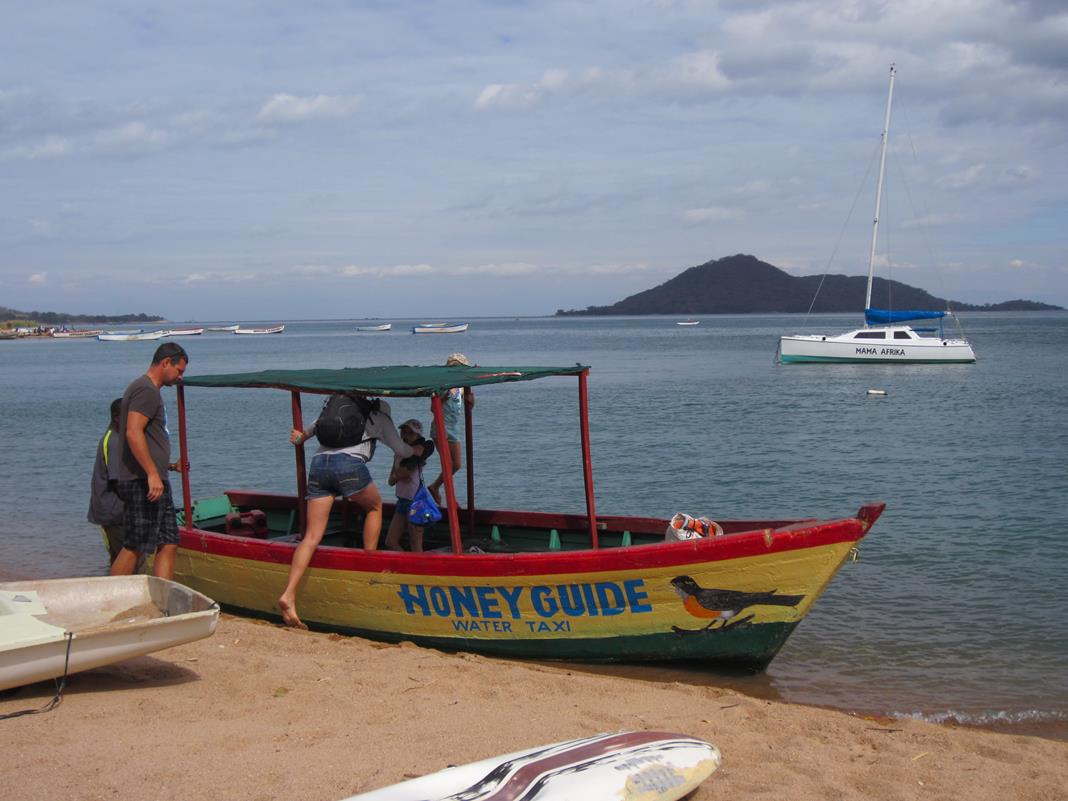
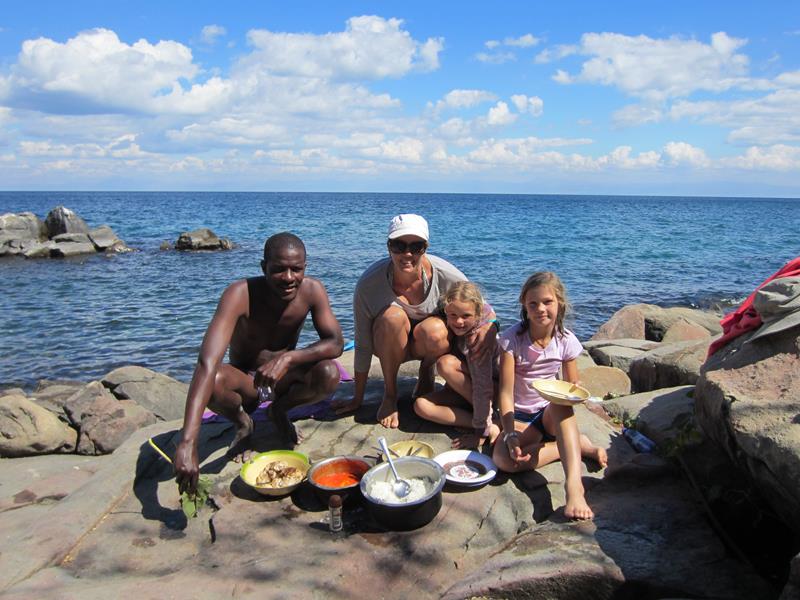
As all the guides have contact with the lodges and camps it is easy to book a snorkel excursion to surrounding islands through your reception at more or less 50USD per person.
Where to stay
Even though it does have a few upmarket lodges, Cape Maclear caters mostly for backpackers and campers. It used to be the most popular backpacker’s destination in Malawi but during the 90s Nkhata Bay further north became the new backpacker’s hub, apparently because of politics in Zimbabwe. Travellers avoided Zimbabwe and chose to take the northerly route through Zambia to Lake Malawi.
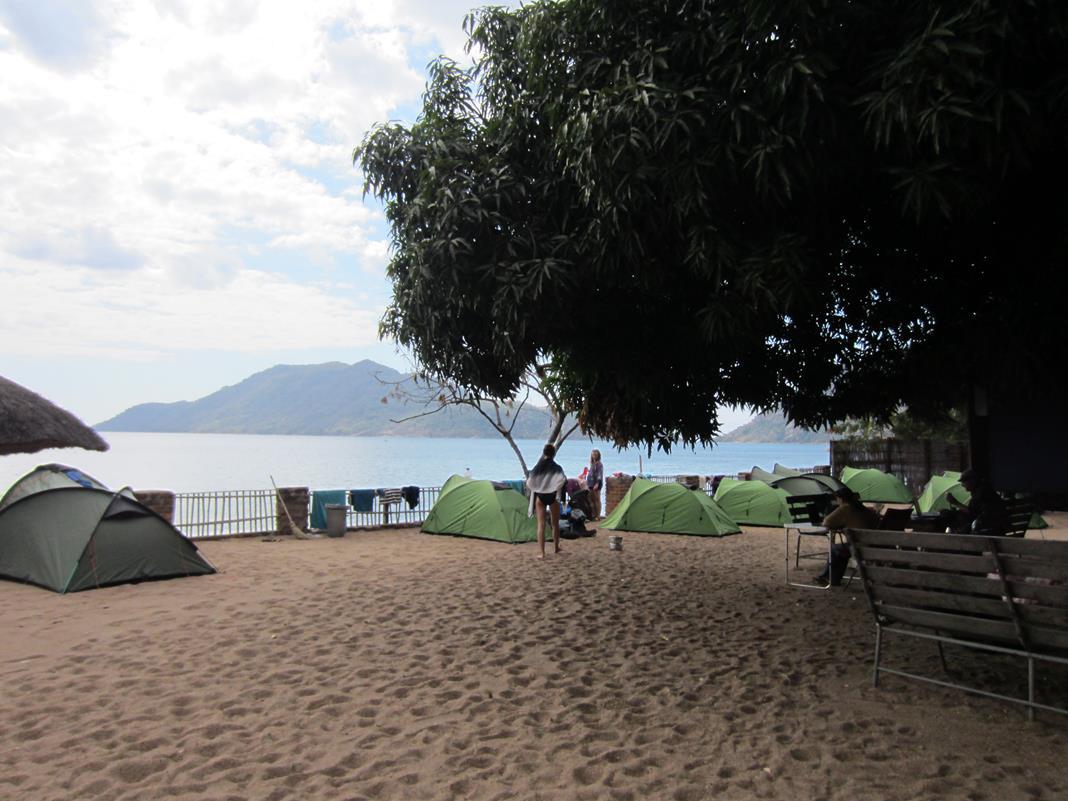
Fat Monkeys is without a doubt the most popular place along the lakeshore, but we found it more suited to backpackers and bikers. For self-drive families Chembe Eagle’s Nest is better. It has a small and private campsite as it is enclosed by hills on the one side and fenced off from the point where local fishermen launch their mokoros on the other.
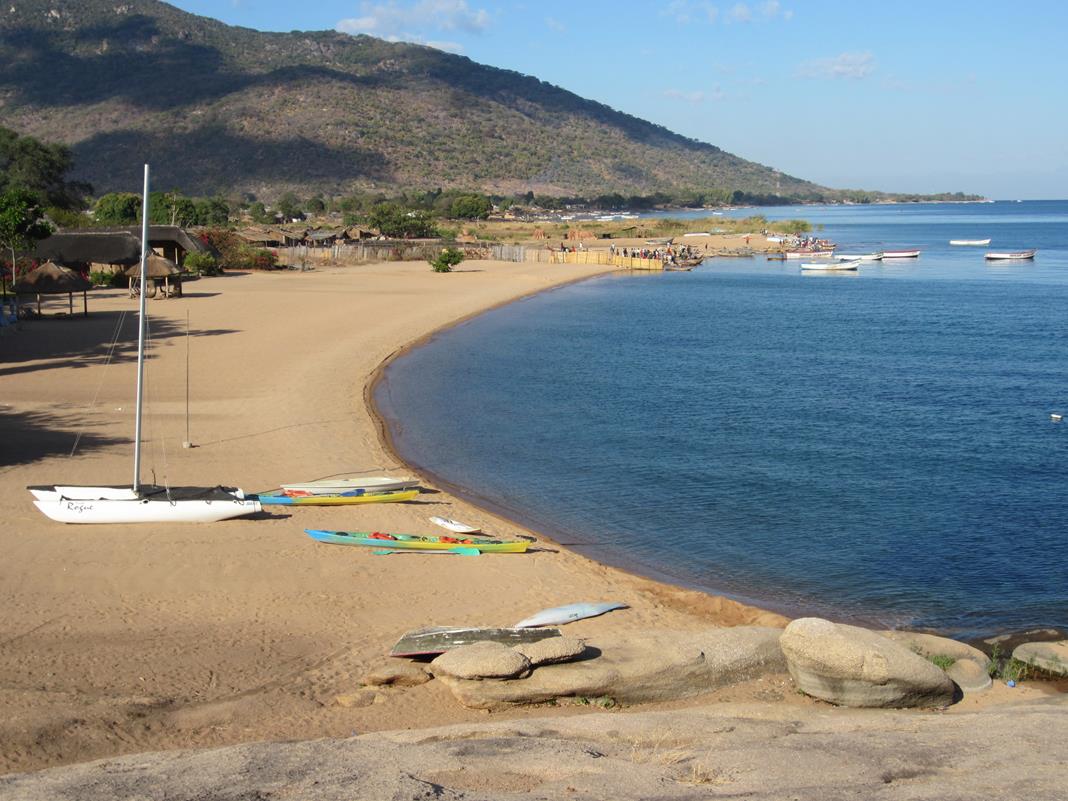
Indaba Lodge is a cosy lodge which is suitable for small tents only. Like Fat Monkeys it is more popular amongst backpackers and bikers than self-drive travellers, but it is much more intimate than Fat Monkeys.
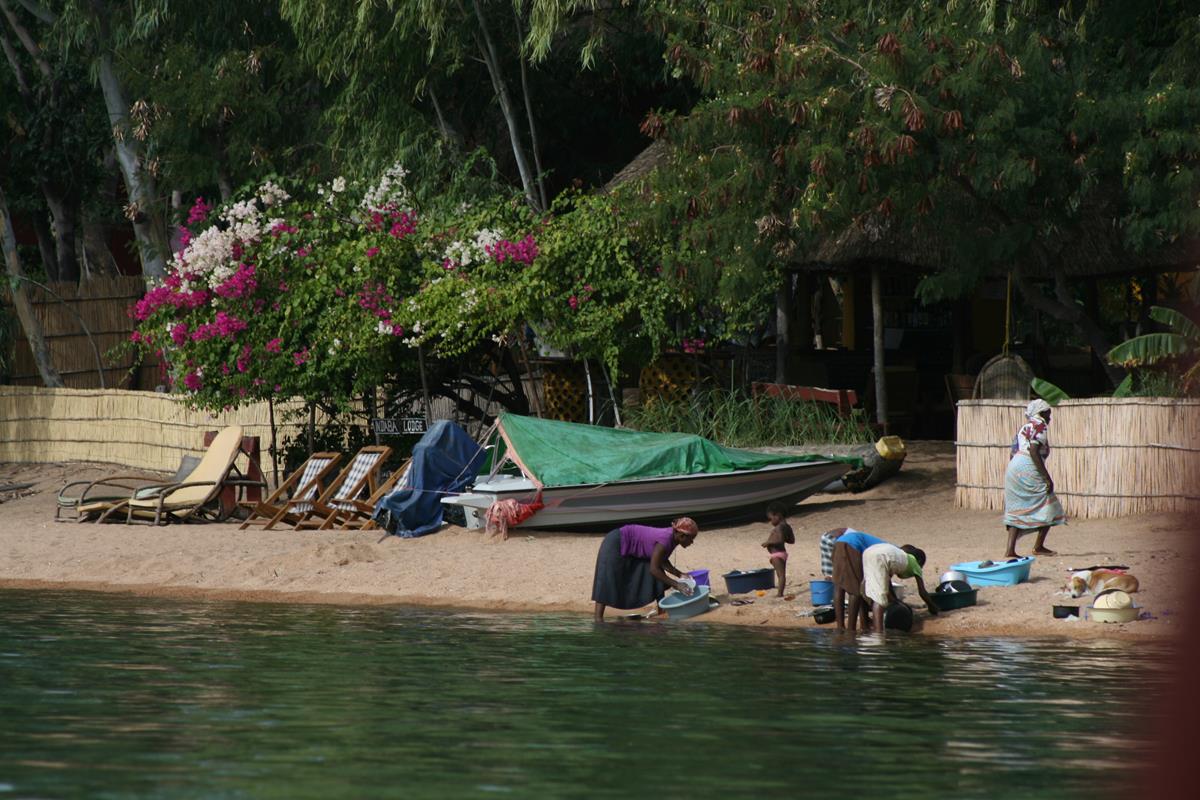
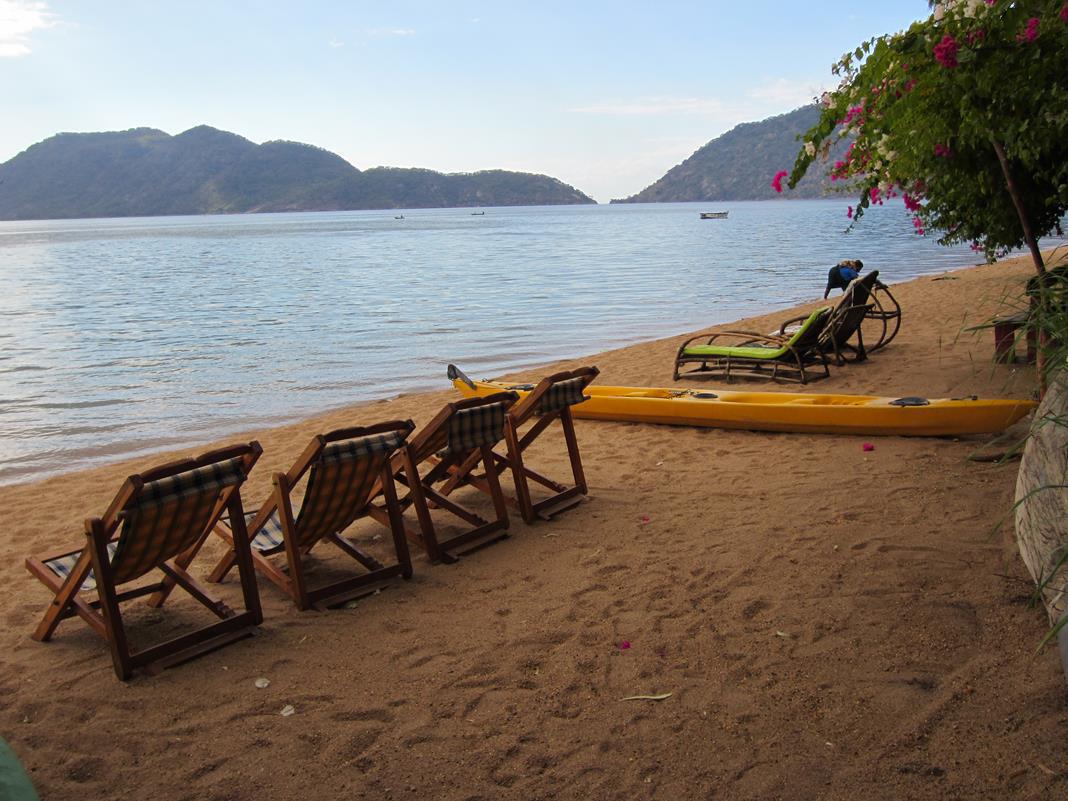
Get what you need in Monkey Bay
Monkey Bay is less than 20km from Cape Maclear. It is the launching point for tourists who make use of public transport but it isn’t a tourist destination in itself. In terms of facilities it offers more to self-drive tourists than Cape Maclear. Like elsewhere in Malawi you can stock-up on food supplies at the Peoples store but the best quality vegetables and fruit are sold at the local stalls along the main road.
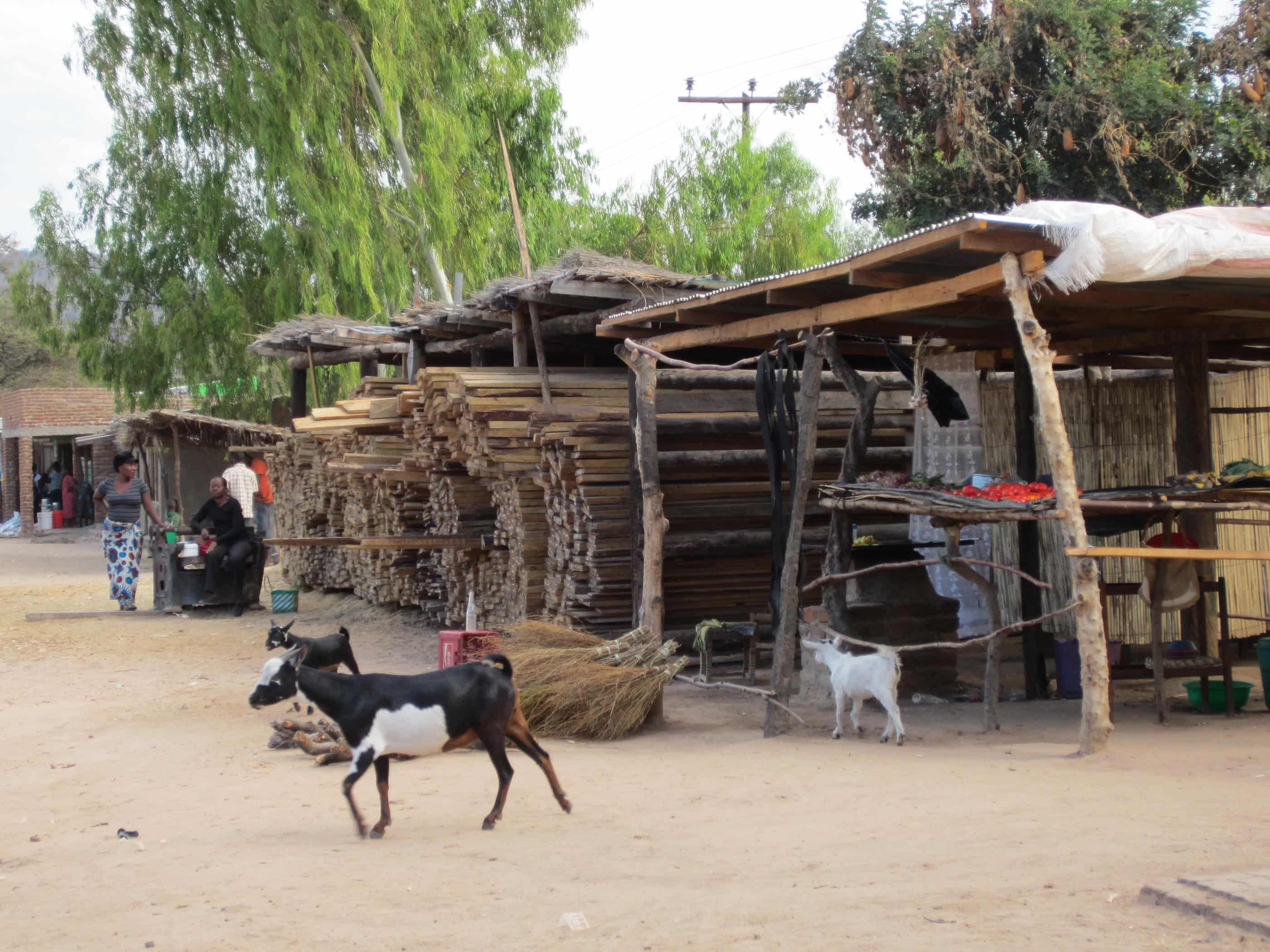 Monkey Bay is a typical African village with goats and chicken roaming the streets and local shops and food stalls being a far cry from the normal Western malls. As soon as you have stocked up and refuelled you would want to move on to Cape Maclear.
Monkey Bay is a typical African village with goats and chicken roaming the streets and local shops and food stalls being a far cry from the normal Western malls. As soon as you have stocked up and refuelled you would want to move on to Cape Maclear.
A word of warning
Lake Malawi is infected with Bilharzia, therefore you should take precautions. Also, you should be aware that this is Malaria area. Read our blog article elsewhere about the things you would want to know before you travel Malawi.
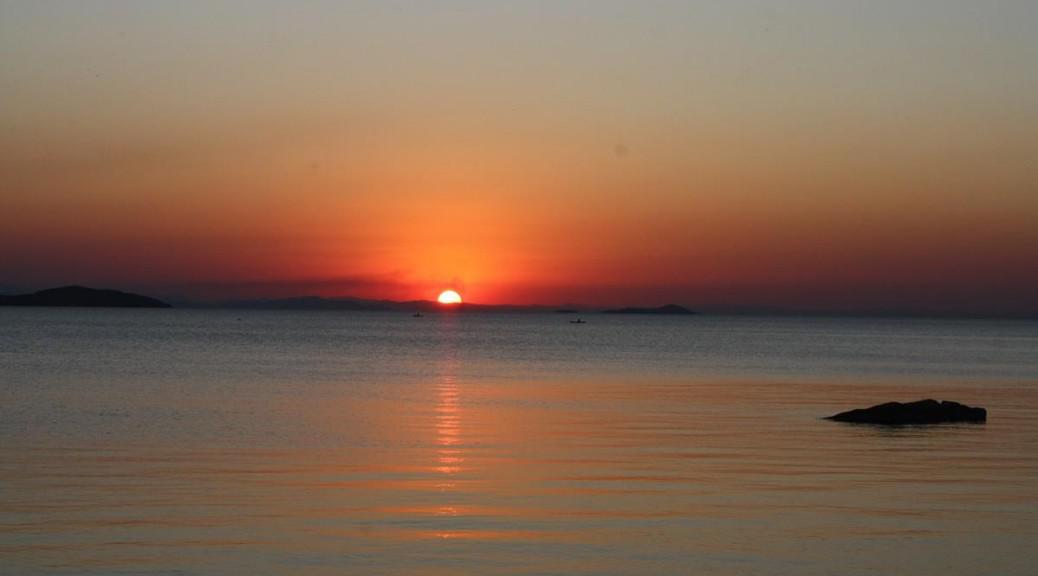

Both myself and my daughter were in Lake Malawi for about 5 days at gecko lounge, we swam, boated to natl park, etc. and both came down with Bilharzia which NOONE mentioned to us. My daughter had it for about 9 mos. before she was diagnosed. At first she was told she had bladder cancer…. I got tested at that time and it was negative. 4 months later I became very ill just before Christmas, was hospitalized, many tests, echos, mri, ct scan . The flukes had infarcted my splenic artery. It was not a fun Christmas or new year, terrible pain, no one in USA knows what the hell it is… my pharmacy bill was about4,000$ and I’m sure my hospital bill will be upwards of 40,000. DONT SWIM IN THE LAKE!
My wife and myself is moving to Chembe Eagels Nest for the next 5 years or longer, we rented the Stone House next to the campsite, we will be operating our Metrology Company, GHM Field Services from there servicing Tanzania, Mozambique and Zambia, we both love Lake Malawi for swimming ,diving and boating, we will for sure visit all Natiobal parks in Malawi and surrounding areas, keep up the good work we enjoy your writing and the comments
Theo and Mariette Schmidt
It is a pity that this very good article states that Lake Malawi is infested with bilharzia. In my opinion this is not true. Bilharzia does exist in the like but the chances of infection are small and with just minor elements of care probably negligible. I built Club Makakola and we used to drink the water without purification at all the places along the lake that I visited while I was there.
Colin, I agree that it would be a pity if people abstained from swimming in Lake Malawi because they fear Bilharzia. You are right that there is a small risk to be infected, however, the risk is real enough that people should be aware of it. We advise travellers to be tested for bilharzia infection about 3 months after they return home even if they don’t show any symptoms of Bilharzia. Maybe you can enlighten us about the care that can be taken to prevent infection?